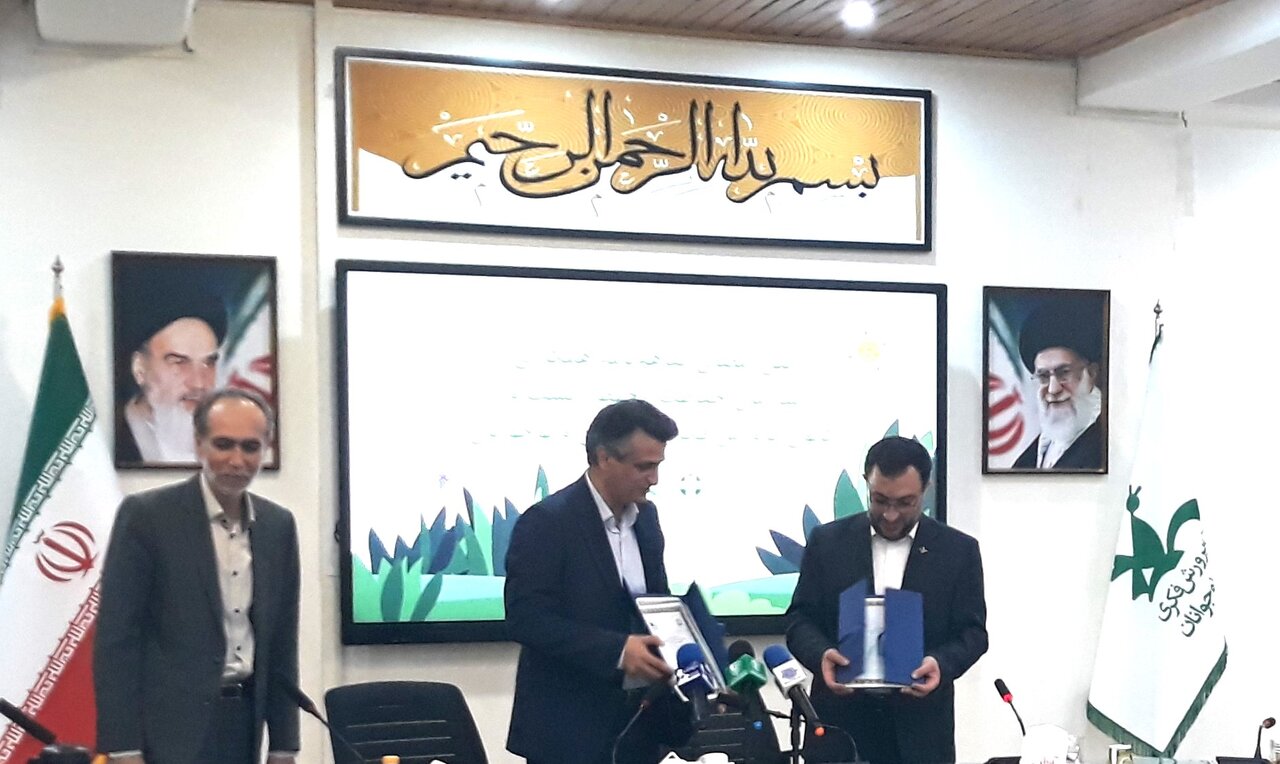DOE, IIDCYA join hands to promote environmental protection

TEHRAN - The Department of Environment (DOE) and the Institute for Intellectual Development of Children and Young Adults (IIDCYA) have signed a memorandum of understanding to promote environmental protection among children and young adults.
The MOU was inked by Hadi Kiadaliri, the deputy head of the DOE for education and public participation affairs, and Hamed Alamati, the IIDCYA director, at the place of IIDCYA in Tehran on Wednesday.
The signing ceremony was concurrent with the second day of National Children’s Week, which is being observed nationwide from October 7 to 13, with the theme ‘children, joy of life’.
Each day of National Children’s Week is celebrated with a focus on a specific topic.
Tuesday, October 7, ‘Family, the beautiful world of children’, Wednesday October 8, ‘Earth, our home’, Thursday October 9: ‘Life, Play, Health’, Friday October 10: ‘Comets’ (commemorating the memory of the children and adolescents martyred in Iran and Gaza), Saturday October 11, ‘Books, the wonderful world of children’, Sunday October 12: ‘The sweet world of children with special needs’ and Monday October 13: ‘Children and the modern world of sciences and technologies’.
Since education plays a key role in boosting environmental protection, the Department of Environment is planning to implement a national project which aims at training eco-friendly students, dubbed as ‘environmental helpers’, in 20 percent of elementary schools across the country.
The project was launched in cooperation with healthcare providers concurrent with the beginning of the new academic year, on September 23.
It aims to identify students who are interested in environmental issues, and encourage them to participate in a working group focusing on environmental-related subjects, IRNA quoted Mohammad Medadi, an official with the DOE, as saying.
These students will later train other students to raise their environmental awareness. The project is assumed to cover all schools in five years, the official added.
Moreover, informal education in the format of extracurricular activities is planned to be carried out. Consequently, the development of a national environment subject is placed on the agenda. It will contribute to creating a roadmap for formal environmental education according to which relevant content would be included in the curriculum, he further noted.
To instill eco-friendly behaviors, environmental education has to be introduced at an early age, when children are in elementary school or even preschool. However, there will be some challenges. Education is an ongoing process; temporary or short-term courses would not induce long-standing behavioral changes. It requires time to see favorable results, Medadi said.
